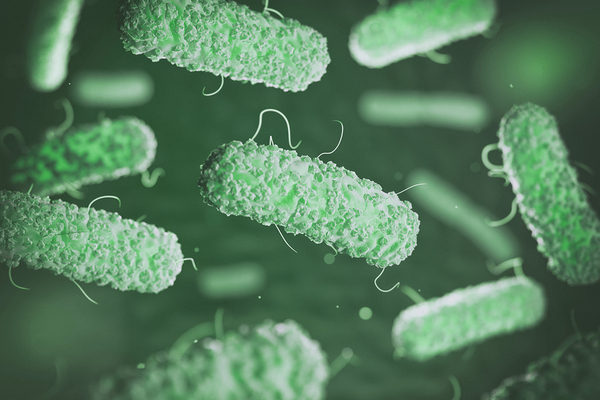


Of course you already know that eating plenty of fiber keeps things moving in the intestines and prevents constipation. In addition to the mechanical role it plays, fiber is also a crucial component of your overall health for additional reasons. Fiber feeds the good bacteria in your gut that are necessary for maintaining good health. Eating plenty of gut-friendly fiber makes it easier for your body to stay nourished and to function optimally.
The Importance of Gut Bacteria
Bacteria usually call to mind infections and illness caused by the pathogenic varieties. Unlike harmful bacteria, probiotic bacteria live in your gut and play important roles in promoting health and wellness. These diverse populations of microbes that make up the gut microbiome play important roles in both digestion and immune processes within the intestines.
Nutrient Utilization
Gut bacteria are necessary for proper digestion and absorption of nutrients. Bacteria in the gut provide enzymes that cells need to make some types of vitamins and amino acids during digestion. The microbes use fermentation to break down complex carbohydrates and make short-chain fatty acids, which the body uses for energy.
Immune System
Did you know that roughly 80% of your immune system is located in the lining of your intestines? The good bacteria in your gut work with the immune system to attack invading pathogens, fight infections, and remove toxins. These microbes serve as the first line of defense against food poisoning and other germs you may have ingested. Short-chain fatty acids produced by gut bacteria help prevent chronic diseases like cancer and fight inflammatory conditions like Crohn's disease.

Fiber-Rich Foods to Feed Your Bacteria
Because bacteria are living things, they need to eat in order to stay alive and multiply. These microscopic organisms that work their magic in the digestive tract require specific types of fiber to feed on called prebiotics. A diet high in prebiotics ensures a healthy probiotic microbiome population. While there are plenty of fiber supplements available, you can also easily get enough dietary fiber by choosing the right foods.
Nuts and Seeds
Several varieties of seeds and nuts contain fiber that bacteria feed on. Flax and chia seeds are high in prebiotic fiber as well as omega-3 fatty acids. They are easy to add to salads, smoothies, and baked dishes to boost your fiber intake. Tree nuts like cashews and almonds combine fiber with protein and good fats for a powerhouse snack.
Vegetables and Fruit
Leeks, onions, garlic, asparagus, broccoli and leafy greens like dandelion and spinach are low-carb sources of prebiotics. Potatoes, apples and bananas are also high in prebiotic fiber as are blueberries, strawberries and other berries. If you are following a low-carb or keto lifestyle, you'll want to choose the lower carb fruit options most often, like berries and consume mostly high fiber, lower carb vegetables. While they are great for your gut bacteria, apples and bananas are higher in carbs than other keto-friendly fruits.
Grains and Legumes
Whole grains like barley, steel-cut or old-fashioned oats, and whole wheat are high in fiber that feed your bacteria, but we recommend limiting or avoiding these due to their inflammatory impact on the gut. Legumes such as chickpeas, black beans and edamame are protein-rich sources of prebiotic fiber that also promote a healthy bacteria population.
Low-Carb Challenges
If you follow a low-carb or keto diet, you will need to choose fiber sources wisely. Oats, barley, apples, and bananas provide your microbiome with plenty of prebiotics but are high in carbohydrates. Jerusalem artichokes are not considered a low-carb food, but they are high in prebiotic fiber and lower in carbs than other root vegetables. Leafy greens, seeds, nuts, and low-carb fruits like berries and avocados are your best options for prebiotics.
Let me help you get the most out of your diet. I can work with you to design meal plans that boost your fiber intake to keep your microbiome happy and help you meet your health goals. Contact Living Proof to schedule your personalized nutrition consultation.